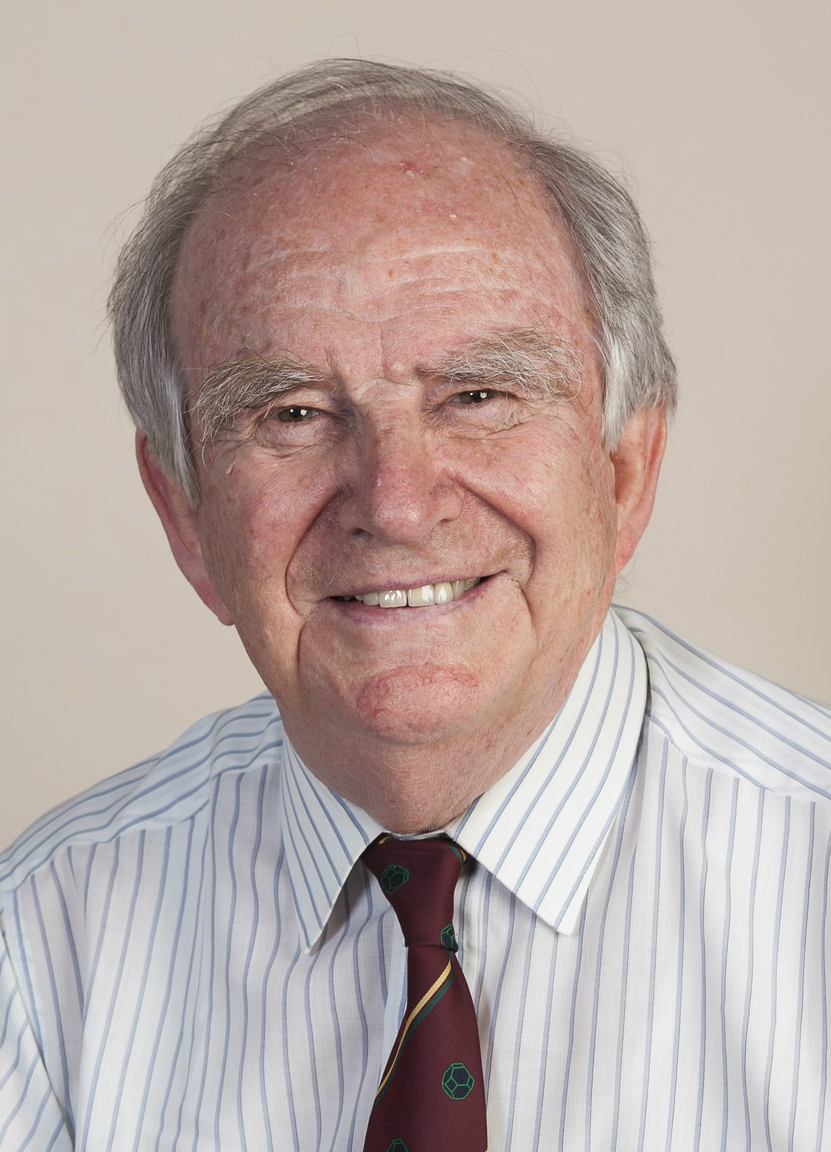
Profile of Sir John Meurig Thomas
Sir John Meurig Thomas FLSW FRS HonFREng is a Welsh chemist and educator primarily known for his work on heterogeneous catalysis, solid-state chemistry, and surface and materials science. He has been Honorary Professor of Materials Science at the University of Cambridge and Emeritus Professor of Chemistry at the Davy Faraday Research Laboratory of the Royal Institution. He is the recipient of twenty honorary degrees from Australian, British, Canadian, Chinese, Dutch, Egyptian, French, Italian, Japanese, Spanish, and U.S. universities, including an Honorary Doctorate from Heriot-Watt University in 1990. He has been elected to honorary membership in over fifteen foreign academies, including the Royal Swedish Academy of Sciences, the American Philosophical Society, the American Academy of Arts and Sciences, the Accademia dei Lincei (Rome), and the Russian Academy of Sciences.
A Citation for Honorary Fellow Professor Sir John Meurig THOMAS
From a humble beginning in a miner’s family in Wales, Professor Sir John Meurig Thomas rose to become the Fullerian Professor of Chemistry at the Royal Institution of Great Britain. Other distinguished positions he held include Head of the Department of Physical Chemistry, University of Cambridge, Director of the Royal Institution of Great Britain, Director of the Davy Faraday Research Laboratory, Distinguished Research Fellow in Materials Science, University of Cambridge, Deputy Pro-Chancellor of the Federal University of Wales, among others. He is currently the Honorary Professor of Materials Science at the University of Cambridge, as well as Emeritus Professor of Chemistry in the Davy Faraday Research Laboratory of the Royal Institution of Great Britain. He also serves as an Advisory Professor in Hokkaido University in Japan and Shanghai Jiao Tong University in China.
Professor Thomas is a chemist with exceptional contributions in the fields of catalysis and materials science. He has published over eleven hundred articles in these areas, over fifty of which were in Nature, the very top high impact journal in natural sciences. Professor Thomas has over thirty patents, some of which are being used in the manufacturing of nylon and vitamins. His inventions greatly reduced pollutions from these manufacturing processes. He is indeed a pioneer in green technology. For his contributions in science, he has received over fifty awards and honours. Time does not allow me to list them all, only a few will be mentioned here. They include the Faraday Medal from the Royal Society of Chemistry, Davy Medal of the Royal Society, Willard Gibbs Gold Medal from the American Chemistry Society (that was the first time in eighty years a British chemist was honoured by the American Society). Other foreign honours include the US Presidential Green Chemistry Challenge Award, Kapitza Gold Medal from the Russian Academy of Natural Sciences, and similar awards from Italy, Sweden, Norway, Germany, Poland, Japan, and New Zealand. Professor Thomas holds Honorary Doctorates from over twenty universities. The most notable one, of course, is the one awarded by Hong Kong Baptist University. Besides being a Fellow of the Royal Society of Great Britain, Professor Thomas is an Honorary Fellow or Member of National Academies of eighteen countries. In 1995 Professor Thomas received a most distinguished, rare, and delightful honour. A new mineral, meurigite, was named in his honour by the International Mineralogical Association to recognise his pioneering work in geochemistry. This mineral forms beautiful crystals.
Besides his contributions to developing new materials for catalysis, Professor Thomas has been active in popularising science. He served as a Trustee of the National Science Museum and of the Natural History Museum, and helped organise the London International Youth Science Festival. He even gave lectures to children and made science understandable to them. For his contributions to chemistry and the popularisation of science, Professor Thomas was knighted by Queen Elizabeth II in 1991.
Mr. Chairman, in view of Professor Sir John Thomas’s distinguished achievements in catalysis and materials science, and his dedication and outstanding contributions to the popularisation of science, it is my privilege to present him to you for the award of an Honorary Fellowship.



